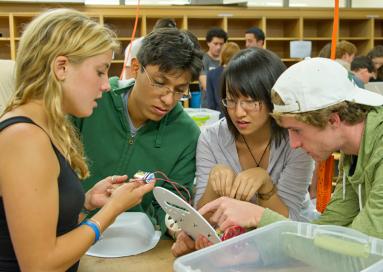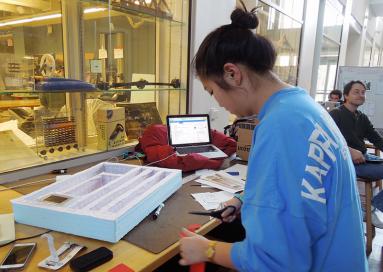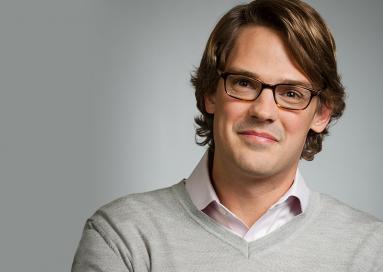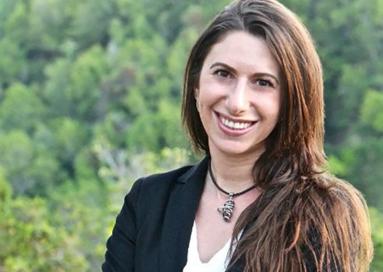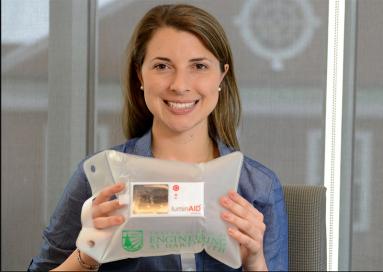Senior Design Challenge
The Senior Design Challenge is a capstone course for seniors passionate about tackling real-world challenges using human-centered design.
In this course, students work with organizations across a broad range of industries to create innovative solutions to challenges affecting our community. Students are selected from across the campus for their passion and skills to work on interdisciplinary teams. They spend the Winter and Spring terms (January through May) applying the design process to an innovation challenge determined in partnership with a partner organization.
This video was produced as part of the Media Makers program funded by the Experiential Learning Initiative. Student Producers: Daniela Armas '20, Emily Crocetti '20, Veselin Nanov '20, Barbara Olachea Lopez Portillo '19, Mariah Reese '17, TH '19
https://www.youtube.com/embed/YfTW9EmH864?wmode=opaque&controls=&origin=http://admissions.dartmouth.edu&autoplay=1&mute=0






